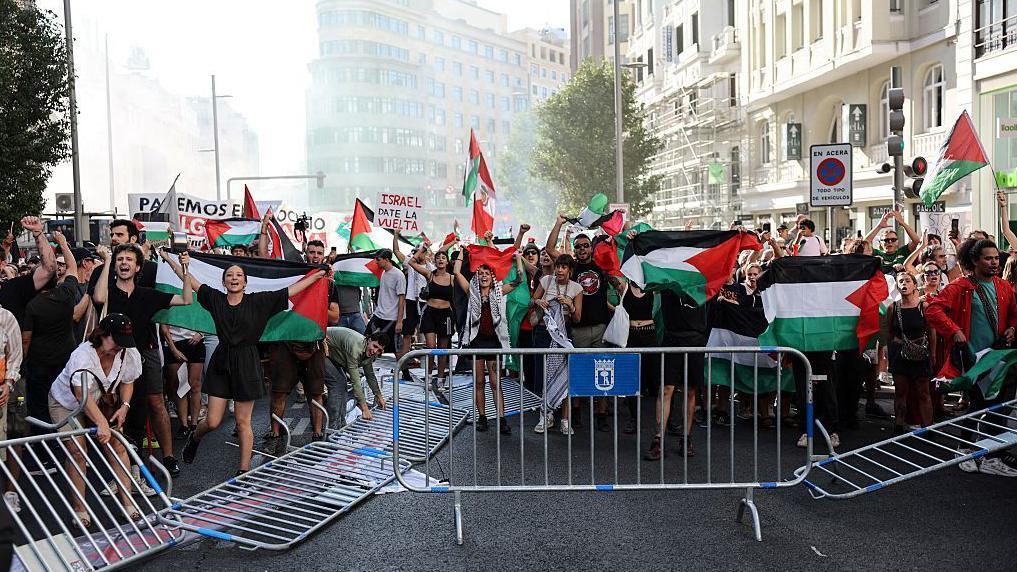World Tour cycling is facing a major crisis after chaotic scenes at the Vuelta a España, where mass protests disrupted the race and forced the unprecedented cancellation of its final stage in Madrid. Demonstrations, many linked to opposition against Israel-Premier Tech’s participation, escalated throughout the three-week event, leading to stage alterations, cancelled podium ceremonies, and crashes that forced riders out.
The protests culminated in the abandonment of the Madrid finale, denying race winner Jonas Vingegaard, João Almeida, and Tom Pidcock their moment on the podium. Instead, the top three improvised a champagne celebration on drinks coolers outside their team hotel, a far cry from the grand televised spectacle sponsors and fans expected.
Several rival teams are now considering a boycott of races that include Israel-Premier Tech, citing safety concerns and the lack of decisive action from cycling’s governing body. Riders and team managers have voiced frustration that the protests not only endangered athletes but also undermined the integrity of the race.
Criticism has grown around the refusal of Israel-Premier Tech to withdraw despite requests from organisers, a decision that fuelled even larger demonstrations. While the team insisted on their right to compete, their continued presence was viewed by many as a catalyst for escalating unrest. The fallout has been severe, with increased security costs, declining television audiences, and disappointed sponsors questioning the value of their investment.
The controversy highlights the vulnerability of road cycling to disruption. Unlike stadium sports, races span hundreds of kilometres of open roads, making them almost impossible to secure fully. Traditionally, minor protests by local groups have been tolerated, but the scale and political focus of the Vuelta unrest mark a new and troubling phase for the sport.
With more protests expected at future races, including next year’s Tour de France Grand Départ in Barcelona, organisers and the cycling world face difficult choices. Some argue that the growing politicisation of sport threatens its role as a unifying spectacle, while others believe protests will remain a powerful tool for activists as long as high-profile teams provide a visible target.
As cycling grapples with the aftermath of the Vuelta, the balance between free expression, athlete safety, and the sport’s reputation is at the heart of a debate that shows no sign of fading.

